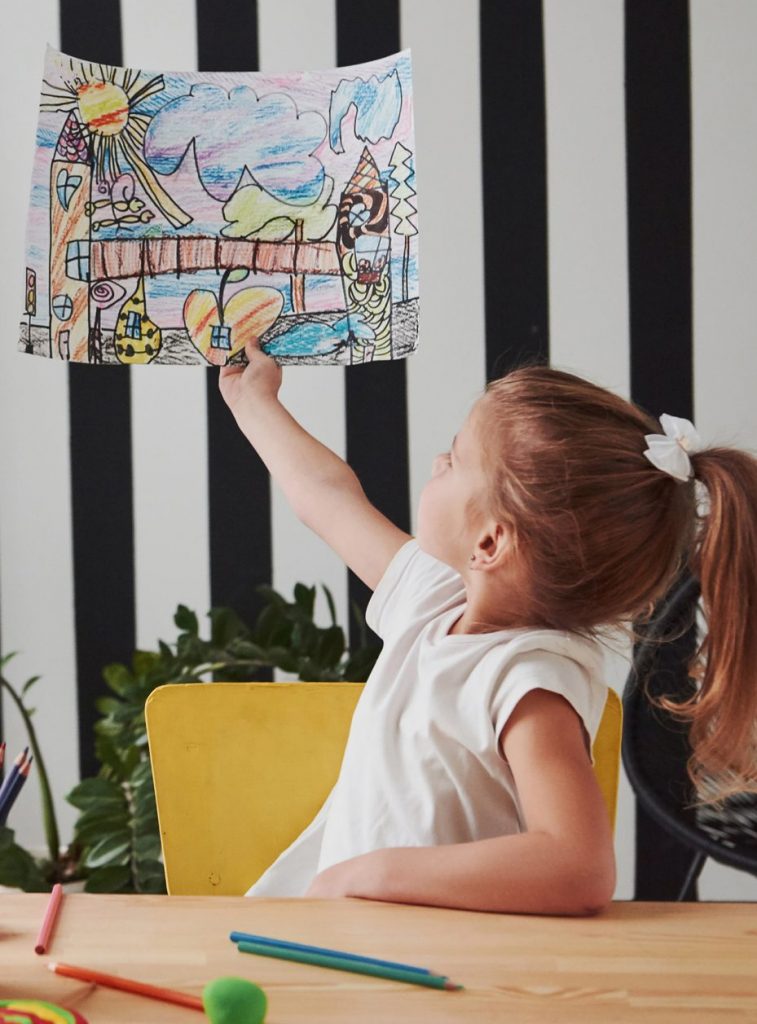Home Education Moderator Meetings
Once you are registered for home education, you will be appointed a moderator from your district. Home education moderators visit home educating families to monitor the educational program being provided to each child and the educational progress they have made. Moderators prepare an evaluation report for the Regional Executive Director about the program and the child’s progress based on evidence provided by home educators who are provided with a copy of the report.

What are the moderator’s responsibilities?
The moderator’s responsibilities are:
- To check that students are making educational progress.
- To check that families have an educational plan that aligns with the WA curriculum or other approved Australian Curriculum.
- To check on the child’s learning environment and access to age-appropriate resources.
How often are moderator meetings?
When you commence home educating, you will meet with your moderator within the first 3 months of registration.
Depending on which regional office you come under you may also have another visit later in your first year.
Provided the moderator is satisfied with your child’s progress, you will then meet with your moderator once a year.
Arranging your first moderator meeting
Under the Education Act, the home educator is responsible for organising an initial appointment with their moderator within three months of the date they registered. In practice however, your moderator will usually make contact with you first.
If you haven’t heard from your moderator after 2 – 3 months of having received your registration certificate, get in touch with your moderator to arrange a meeting at a mutually convenient time. If you are not sure who your moderator is, contact your local Department of Education regional office.
Most moderator meetings will take place at the family’s home however, meetings can also be held elsewhere if necessary. Circumstances such as home renovations or moving house may mean it’s more appropriate to hold a meeting elsewhere. If this is the case, contact your moderator to discuss an alternative venue. You may need to provide photos to show that your child has places to learn and appropriate learning resources.
You may wish to have your first meeting without your child present if you have sensitive information to discuss with your moderator or if your child has social anxiety or another condition that would make meeting a stranger uncomfortable for them.
The moderator will expect to see your child on a subsequent visit, although in exceptional cases, you may be able to provide videos of your child instead.
Your moderator will usually have a chat with your child first and they may then choose to do something else rather than sitting in on the rest of the meeting, although students who want to stay are welcome.
There is no set format for meetings. Most meetings go for 1-2 hours depending on the number of children you have and other factors. Your meeting shouldn’t exceed 3 hours.
Your moderator will inquire as to what your educational plan and approach are, what you have been doing in your home-educating journey, how you are meeting the curriculum requirements, and how your child is progressing with their education. For more information on what to show your moderator, see our Planning and Reporting section.



What happens after a meeting?
You will receive a written report from the moderator after the meeting – usually within 4 – 6 weeks. If you have not received a copy of your report after 6 weeks, contact your moderator to ask for one. Typically, the report might include an evaluation of the program, an indication of the child’s achievement, areas needing attention, suggestions for strategies and/or resources to move the child on and answers to any questions raised at the meeting.
For subsequent meetings, your moderator may suggest a date or may contact you closer to the time. If you know you have a meeting due and you haven’t heard from your moderator, be sure to follow up and set a date.
What if my moderator expresses a concern?
If your moderator expresses a concern or dissatisfaction during a meeting, first wait to get your written report. Concerns that a moderator feel need to be followed up must be put in writing. If your moderator sends you a notice of concern or if you have any problems or queries regarding moderators, please contact HEWA and we can provide mentoring or assistance to address these concerns. In most cases, concerns and problems can be easily handled with appropriate support.
Approaching your moderator meeting
Some people find the prospect of a moderator visit to be daunting or stressful, however, the majority of moderators are supportive people, and most visits go smoothly. HEWA surveys consistently show that the vast majority of home educators are happy with their moderators. Here are some points to keep in mind as a visit approaches.
Be prepared
If you’re prepared for your moderator, you are unlikely to have problems. Keep any pieces of work that children have done and take lots of photos of your activities as you go. Preparation doesn’t have to be stressful – it’s just a matter of knowing what you need to show the moderator and being confident.
Be aware
Know your rights and responsibilities. If you know what you are required to provide and you know what your rights are, you will be able to address problems in a respectful but confident way. If you are aware of your child’s learning and how it relates to the WA Curriculum, then you are not likely to have problems.
Build relationships
One occasionally encounters negativity about moderators from some home educators, especially on social media, however, keep in mind that there are always two sides to a story and that most people have no problems with their moderator. Seek to establish a good relationship with your moderator from the outset. Your moderator may come from a different perspective or advocate for a different approach to yours but if you keep in mind that they are there to assist you in your home education journey, you will find that most moderators are very supportive.
Consider suggestions
Most moderators come from a mainstream education background and are therefore used to instructing and giving directions. Moderators sometimes make suggestions in a way that sounds more like a requirement. If you are unsure whether something your moderator is asking of you is a requirement or a suggestion (regardless of how it is framed), contact HEWA and we can offer advice. As long as you are meeting the home education requirements, you are free to provide your child with the education you feel best.



